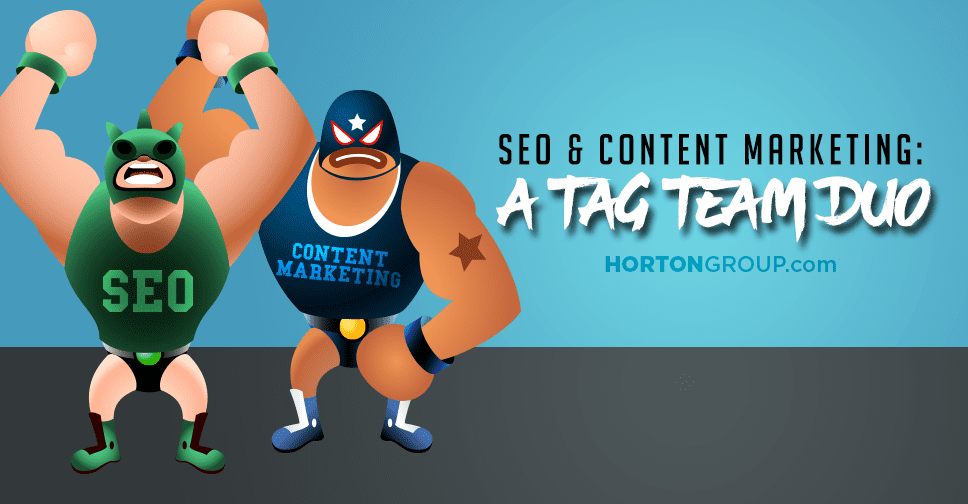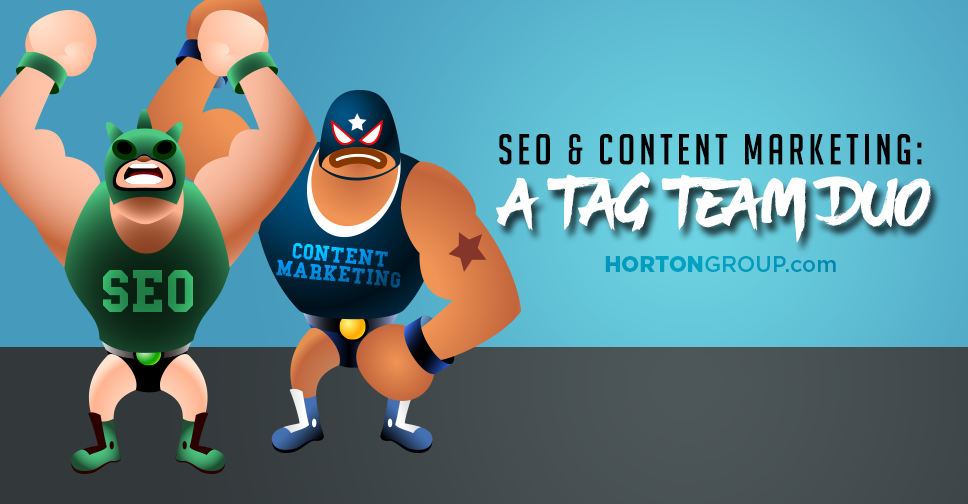
SEO & Content Marketing: A Tag Team Duo
 Many hail content marketing as the new SEO, but is this true? Can remarkable content replace SEO, or do the two go hand-in-hand to deliver value to online searchers?
Many hail content marketing as the new SEO, but is this true? Can remarkable content replace SEO, or do the two go hand-in-hand to deliver value to online searchers?
The answer lies in recalling the original purpose of SEO. From its origins, SEO was never meant to provide significance on its own. It only contributed anything of worth when paired with remarkable content.
SEO’s job is and always has been to get content before the eyes of website visitors. The practice will forever need content to be of any value, and content invariably needs optimizing to acquire an audience—at least when it comes to the web.
The Current Relationship between SEO and Content Marketing
To understand the current relationship between SEO and content marketing, we must understand why search engines were created in the first place. The answer: to connect people to information, which typically comes in the form of content. Therefore, content has always been part of the equation.
When search engines started to gain traction, SEO experts rose up and began optimizing their web pages, so their content could be more accessible to new audiences. And while some took this opportunity to game the system with black hat techniques in an effort to increase rankings, they were soon penalized by Google. Not because Google is out to get people, but because SEOs were promoting spammy content that provided little to no value for visitors.
Modern Day SEO
All this changed with the advent of recent algorithms like Penguin, Panda and Hummingbird that weed out spammy content. With these algorithms in place and constantly updated, search engines soon began to again deliver quality results. Thus SEO evolved, shifted, changed. It is now no longer about stuffing your content with keywords, it is about using techniques that make your content higher quality and easily sharable (which for some is what it was about all along).
These new techniques are the modern day SEO. They are the current tools we use to optimize our content for the best possible user experience
What is Quality Content?
Just saying that we need to focus on creating high quality content can seem a little vague, so it may be helpful to define what type of content Google considers high quality. Google considers content high quality when it benefits the user. Here are some important items to consider:
- Write for your audience first
- Fully cover the topic
- Make it readable
- Include rich media
- Reference authoritative sources
- Keep content fresh
There are many more tips for creating high quality content, but this will give you a good start. To further your learning, feel free to check out this article on quality content by Google.